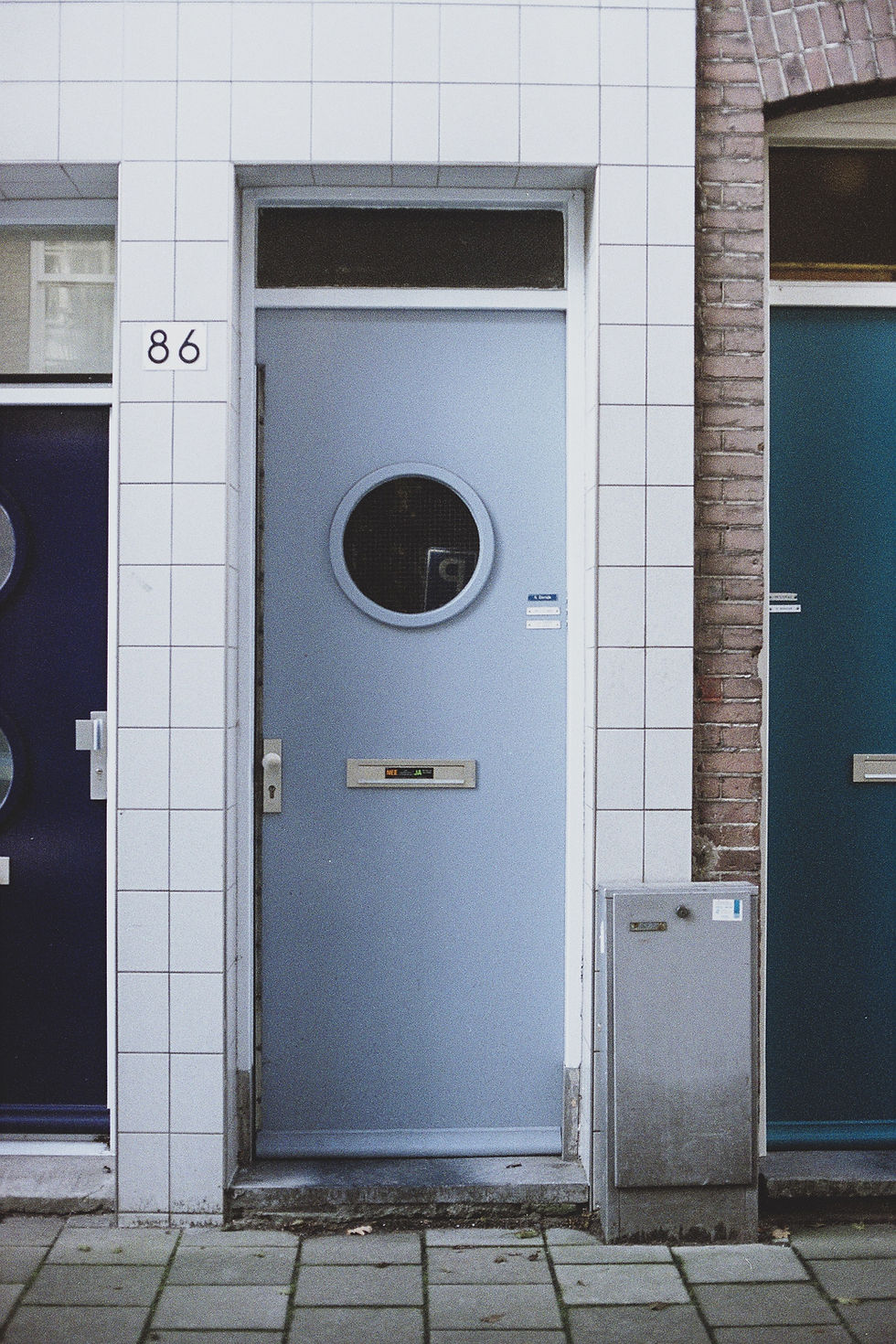Letting Go: Understanding Hoarding and Access to Mental Health Support
- nicolae31
- Oct 9, 2025
- 3 min read
Each year, World Mental Health Day shines a light on the importance of caring for our mental wellbeing and ensuring that everyone can access the help they need. This year’s theme is” access to services”, that reminds us that no one should face mental health challenges alone or without support.
Yet some conditions remain overlooked and misunderstood, leaving many people without the recognition, understanding, or care they deserve. One of these is hoarding.
Too often, hoarding is seen as simply a problem with ‘stuff’, when in fact it is a recognised mental health condition that can deeply affect a person’s life, safety, and relationships. Despite this, it remains underfunded, under-resourced, and poorly understood.
World Mental Health Day gives us an opportunity to bring compassion and awareness to this hidden struggle. As well as to consider the small, meaningful steps that can make a difference for those affected.
Understanding Hoarding – More Than ‘Stuff’
Hoarding isn’t about mess or disorganisation. It’s a complex emotional condition where a person feels compelled to keep items, regardless of their value, and experiences significant distress at the thought of letting them go.
For some, possessions offer comfort or a sense of control in uncertain times; for others, they represent memories, loss, or identity. Hoarding Disorder was formally recognised as a mental health condition in 2013, when it was added to the Diagnostic and Statistical Manual of Mental Disorders (DSM-5).
Research suggests that around 1.2 million people in the UK may be living with hoarding behaviours, yet few receive appropriate help or intervention. Many people suffer in silence, feeling shame, fear of judgment, or not knowing where to turn.

The Link Between Hoarding and Mental Health
Hoarding is often linked with anxiety, depression, grief, or trauma. It can also lead to isolation and low self-esteem, creating a cycle that’s hard to break. For those affected, ‘stuff’ is rarely the real issue, it’s what lies beneath: the emotions, memories, or fears attached to the things they keep.
When access to mental health support is limited, people struggling with hoarding may find themselves without professional help or understanding. This highlights exactly why greater awareness, funding, and accessible services are so essential.
“When our homes feel cluttered, our minds often do too. But the journey to clearing space begins with kindness, not criticism.”
Five Gentle Steps to Support Letting Go
Change doesn’t happen overnight and it shouldn’t have to. Coming in and taking everything away isn’t the answer and can often cause more harm. Small, compassionate actions can help someone begin to feel more in control, supported, and hopeful. Here are five gentle steps that can help:
Acknowledge Feelings
Letting go can bring up sadness, fear, or guilt. Notice these feelings without judgment. Understanding the emotions behind hoarding is the first step toward healing.
Seek Support
Reaching out for help is a sign of strength. Whether through a GP, therapist, or local support group, professional guidance can make a huge difference; yet too many people struggle to access it. Campaigns like World Mental Health Day remind us how vital it is that these services are available to everyone, without barriers.
Start Small
Begin with one manageable area - a drawer, a shelf, or a single box. Small wins build momentum and confidence.
Find Calm Through Nature
Spending time outdoors can ease anxiety and help bring perspective. Just as the trees release their leaves each autumn, we too can learn to let go. Slowly, gently, and without judgment.
Celebrate Each Step
Every small act of progress matters. Recognise the courage it takes to begin, and remember that letting go of objects, guilt, or expectations, is a process of renewal.

Where to Find Help
If you or someone you know is affected by hoarding, you can contact Red Squirrel for assistance, starting with a free 20-minute consultation call us on 07752 618619 or email bjh.redsquirrel@gmail.com . Alternatively, you can also contact:
Mind – mind.org.uk: Information and support for mental health conditions, including hoarding.
HoardingUK – hoardinguk.org: A national charity providing support groups, helplines, and advice.
NHS – nhs.uk/mental-health/conditions/hoarding-disorder: Information on symptoms, causes, and treatment.
A Final Thought
This World Mental Health Day, let’s remember that mental health support should be a right, not a privilege. Everyone deserves understanding, compassion, and access to the care they need; including those whose struggles are less visible.
For those struggling with hoarding it is positive to look to nature as ‘Autumn reminds us that letting go isn’t the end of the story, it’s the beginning of something new.” Whether it’s an object, a memory, or a feeling, letting go is not about loss; it’s about creating space for healing, growth, and hope.






Comments